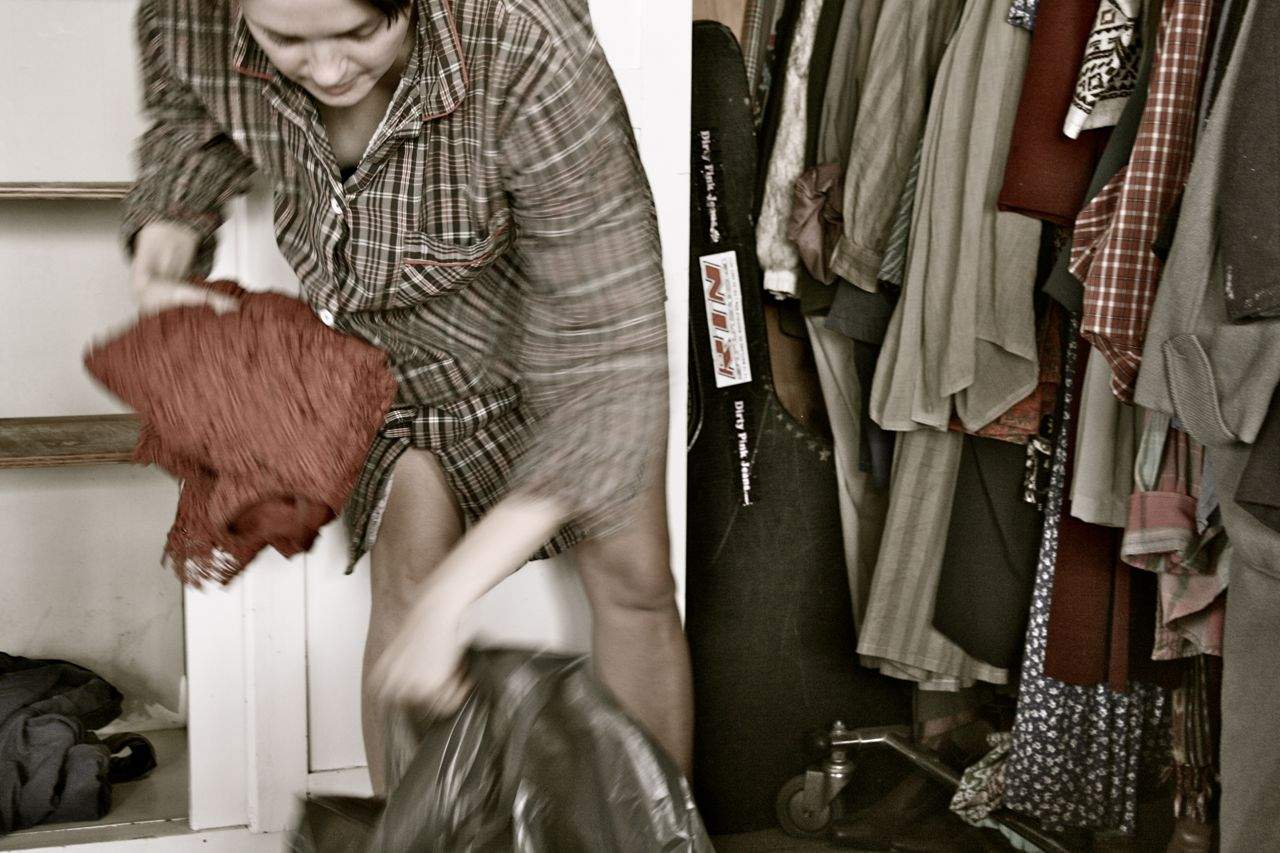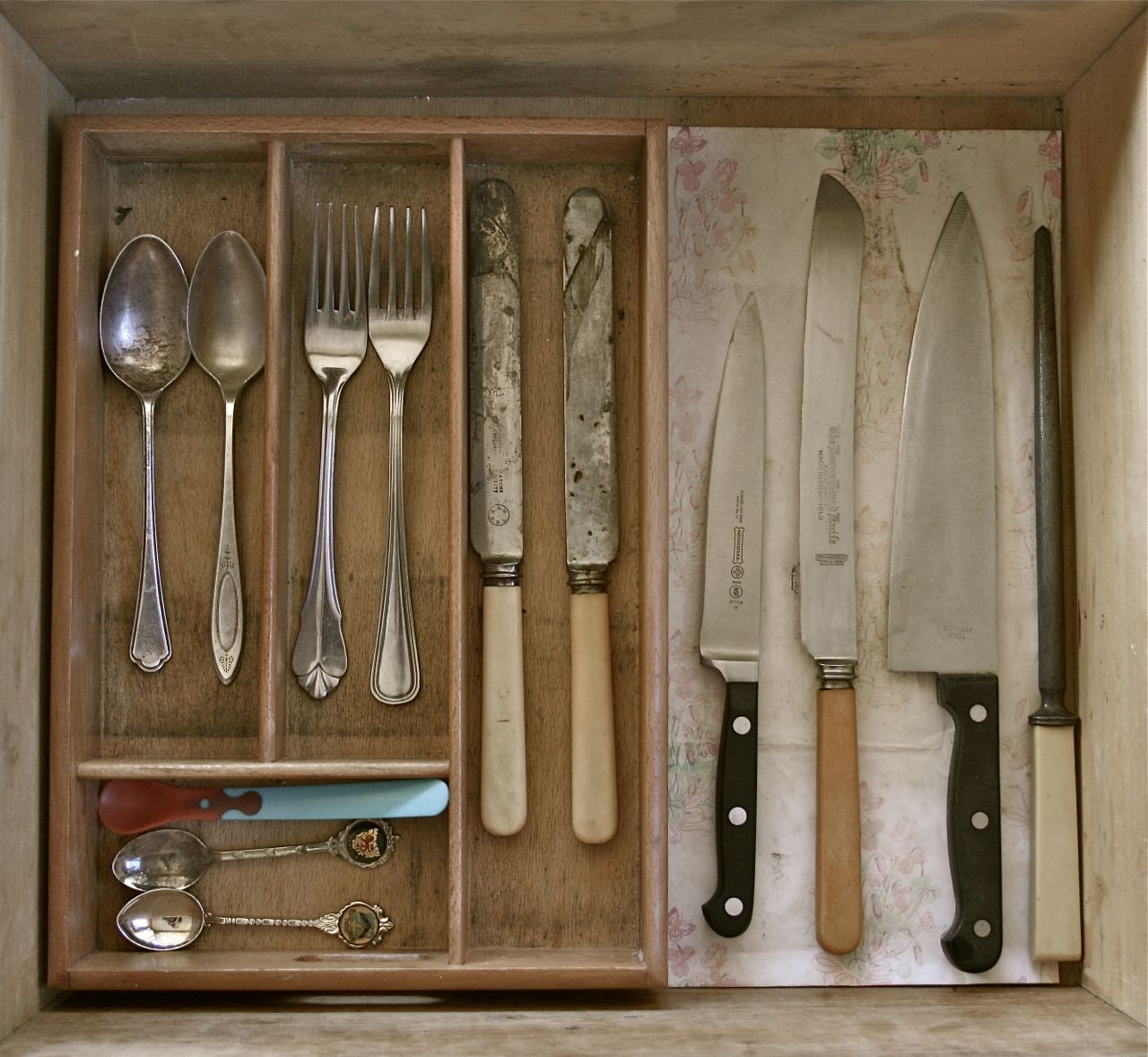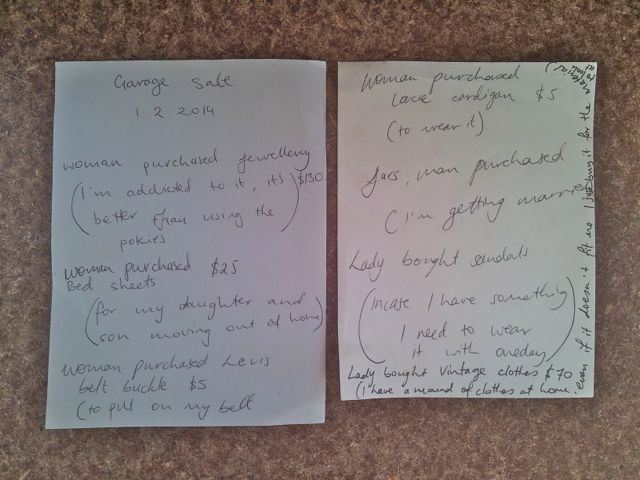Minimal Living: Rejecting Excess and Finding Clarity with Lottie Consalvo
Are we weighed down by our possessions? We speak to artist Lottie Consalvo about low-living.
In many ways, our objects and possessions define us. In choosing to own something, we make a conscious (or perhaps subconscious) decision about its significance to our lives, who we are and, often, who we want to be. But in a time of mass production, excessive consumption and disposal incomes, perhaps it is the very same 'stuff' we choose to define ourselves by that in fact dilutes our true selves. Whether out in the open or organised neatly into cupboards and shelves, does the collective weight of our belongings mentally drag us down?
New South Wales-based artist Lottie Consalvo has embarked on a yearlong performance piece that explores the effect our physical items have on us. Her project — Compartmentalise — was conceived after the birth of her first son, a time where Lottie felt she'd lost control over her time, life and home. In an attempt to find some sense of clarity and regain control, Lottie committed to living with minimal possessions — two tops, two pants, one dress, three pairs of underwear, one knife, one fork, etc. — for 12 months.
Despite living with her husband and baby boy, working at a gallery, developing her artistic practice and maintaining an active social life, Lottie has remained within the performance since August 7, 2013, documenting her experiences and musings along the way. With three months until the conclusion of Compartmentalise, we spoke to Lottie about the discomforts and satisfactions of her minimal lifestyle, and whether de-cluttering her possessions has led her to find the clarity she so desperately sought.
It's really interesting to see your development through the Compartmentalise entries. Do you feel you have become kinder to yourself throughout the process?
I went to a talk this week by performance artist Tehching Hsieh who has done one-year performances, and a 13-year performance. One performance he spoke about was Time Clock Piece, where he punched a time clock every hour for the entire year. He said he got a bit lazy half way through the performance, slept through the occasional alarm and was late to punch, but when he only had three months left he focused more again — although you could hardly call his efforts lazy. When you are being so extreme, after time you start to relax a little and become kinder to yourself, as you say.
For example, recently when my pyjamas were in the wash and I was freezing in just a t-shirt, I finally got up and put my husband James' clothes on. I also started letting myself accept and buy books and plants. I would never have done that in the first few months of the performance. However, now that I'm reaching the nine-month mark and the end is in sight, I think I'll be harder on myself again, perhaps so the ending feels more satisfying.
I didn't foresee having to replace so many items — my dress, shoes (two pairs have broken though have only replaced one pair), belt, pants, sunglasses, cup, my car (the engine of my old one died). I used to feel guilty when I had to replace something as if I had failed the performance, but as time has gone on I have been more forgiving and accepted it as a part of the performance. So yes, I have become kinder to myself as the performance progresses in that respect.
You sold off many of your possessions in a garage sale, but buyers were only allowed to purchase if they could justify why the needed/wanted the item. Why was this significant to you?
I hoped that it would make people think beyond the satisfaction of their purchase and the satisfaction of the desire driving them to buy. It really stirred something uncomfortable in people beyond what I had hoped for, and I liked that.
What has been the most satisfying aspect of Compartmentalise?
Finding out how little I need to live and no longer being scared to let go of things in case I need them in the future.
And the most difficult?
The discomfort. As the performance has progressed I have become greatly uncomfortable. I often have to wear dirty clothes and wet underwear. I also don't have a cosy outfit to put on other than my pyjamas. Even right now my feet are cold as I have no thick socks.
What will you retain from Compartmentalise?
I hope to always question what I need before buying more, now knowing that everything I bring home will not only fill my home but also my mind. I hope still to live with limited possessions, though a few more than now. I hate the idea of having a full wardrobe, cupboards and cluttered surfaces again — I have a phobia of it now. I want to carry on buying fewer things that I really love and are better quality even if they cost much more money. I will also treat my belongings with much more respect.
Come August 7, what do you think will happen when you finish Compartmentalise? Do you feel like it will be difficult to transition back to having (a few) more possessions?
I think I will wake up and put different clothes on. I imagine that I will get pleasure out of the feeling of different clothes hugging my skin in different ways and wearing some colour, however the novelty will probably wear off quickly. I don't think it will be difficult. In fact, it would be very easy to fall back into the habit of buying and collecting — but I don't want this. I want to take it very slowly, it will be a slow transition to a more balanced place.
You started this project to help you find clarity. So far, do you feel like you've found some?
I'm not sure if I have found clarity so much as I have found a sense of weightlessness. When I look at my empty home I feel the clarity, but through the performance I have found that technology (as wonderful as it is) and work are what stop me from continuing this clarity through my days. Perhaps I need to remove technology, and time.
Images courtesy of Lottie Consalvo. Follow the remainder of Lottie's performance via her Compartmentalise blog.








